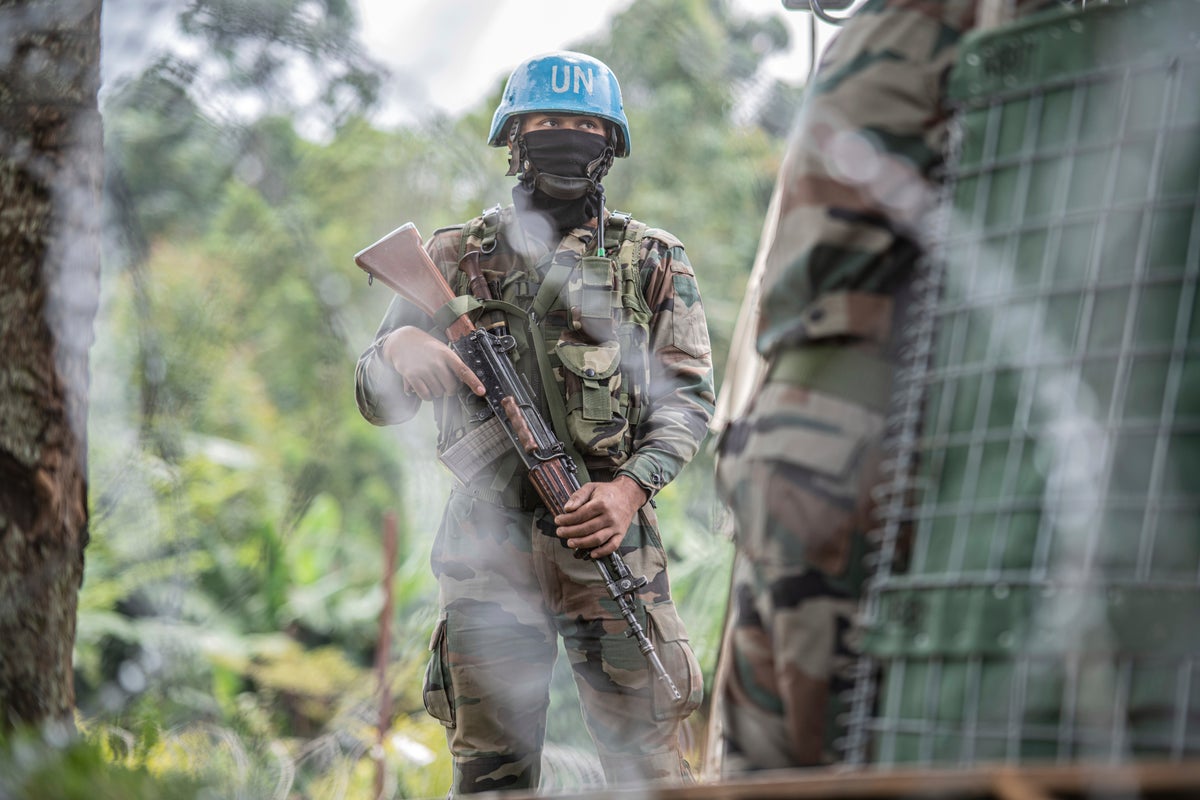
The U.N. peacekeeping mission in Congo, which helped in the fight against rebels for more than two decades before being asked by the Congolese government to leave, will complete its withdrawal from the Central African nation by the end of 2024, the mission said Saturday.
A three-phased withdrawal of the 15,000-force will begin in the South Kivu province where at least 2,000 security personnel will leave by the end of April in the first phase, according to Bintou Keita, head of the mission known as MONUSCO, after which forces in the North Kivu and Ituri provinces will also leave.
"After 25 years of presence, MONUSCO will definitively leave the DRC no later than the end of 2024,” Keita said at a media briefing in the Congolese capital of Kinshasa. The end of the mission will not be “the end of the United Nations” in the country, she added.
The U.N. and Congolese officials worked together to produce a disengagement plan for “a progressive, responsible, honorable and exemplary withdrawal of MONUSCO,” Congolese Foreign Minister Christophe Lutundula said. Modalities have also been set for “the gradual transfer of tasks from MONUSCO to Congolese government,” Lutundula added.
The MONUSCO force arrived in Congo in 2010 after taking over from an earlier U.N. peacekeeping mission to protect civilians and humanitarian personnel and to support the Congolese government in its stabilization and peace consolidation efforts.
However, frustrated Congolese say that no one is protecting them from rebel attacks, leading to protests against the U.N. mission and others that have at times turned deadly.
Over the years of its existence, eastern Congo continues to be ravaged by more than 120 armed groups seeking a share of the region’s resources such as gold and trying to protect their communities, some of them quietly backed by Congo’s neighbors. The violence is occasioned by rampant mass killings and has displaced nearly 7 million people.
The Congolese government — which has just been reelected in a disputed vote — requested the U.N. mission to leave the country after claiming the security collaboration “has proved its limits in a context of permanent war, without the longed-for peace being restored to eastern Congo.” The government has also directed an East African regional force, deployed last year to help end the fighting, to leave the country for similar reasons.







